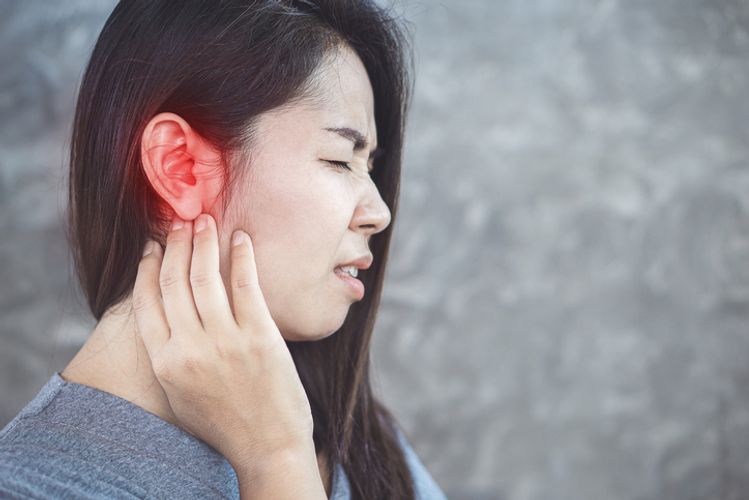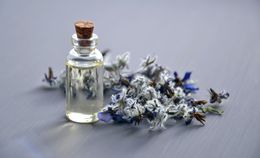If you're familiar with the common annoyance of hearing ringing in your ears following a loud concert, you've experienced tinnitus. Tinnitus is a condition of perceived sound that most people experience at some point in their lives, most commonly as a symptom following exposure to loud noises.
"Ringing in the ears" is the most commonly known form of tinnitus, but that familiar phrase is far from a full picture of this condition. Tinnitus can take the form of other sounds, too. Buzzing, whistling, hissing, chirping, humming, roaring, whooshing, static, sirens, screeching, shrieking and even similar to dial tones or the sound of waves are some of the ways different sufferers have described it.12
The lingering ringing sound people often hear after leaving a loud concert usually doesn't last long and requires no treatment. However, for some people, tinnitus can be a more serious, long-term, and sometimes debilitating condition.
Understanding types of tinnitus and their causes
Before we explore treatment options, it's important to break down the different types of tinnitus and possible causes for different forms of this condition.
Chronic tinnitus
Tinnitus is considered chronic when it lasts for more than six months. Chronic tinnitus is often associated with psychological problems like depression and anxiety, and quality-of-life impacts, including disruptions of sleep, work, and relationships. Understandably, this form of tinnitus frequently causes sufferers to seek treatment.
Subjective vs. objective tinnitus
Tinnitus is considered subjective when there is no identifiable external source for the noise - only the sufferer hears the sound. Subjective tinnitus is by far the most common kind.
Objective tinnitus, which is rarer, refers to a bothersome ongoing sound that can be perceived by others because it has an external source. This includes pulsatile tinnitus with a biological source that a physician can identify, such as a heart murmur, as described in the next section.
Pulsatile vs. non-pulsatile tinnitus
The sound experienced in tinnitus can be smooth or rhythmic, matching the sound of the body's pulse - in the latter case, this is the sound of the heartbeat or pulse through the ear, and it's called pulsatile tinnitus.
Pulsatile tinnitus, also called pulse-synchronous, rhythmic or vascular tinnitus, is a rare form of the condition in which the sufferer hears continuous sounds others don't, but in this case the sounds originate in the patient's own body. Most often the sound is similar to whooshing or waves, reflecting their biological origin.
Causes of tinnitus
The underlying causes of pulsatile tinnitus can range from benign to dangerous, so if you experience the rhythmic form of tinnitus, it is important to see a doctor to get screened for any serious medical condition that might be generating the sound as a symptom.
Elderly people with stiffened arteries are at higher risk for pulsatile tinnitus because their blood flow can be less smooth and more turbulent.3 Heart murmurs can cause pulsatile tinnitus, as can tumors and damaged blood vessels, high blood pressure, anemia and hyperthyroidism, and vein and artery malformations.4
Non-pulsatile, subjective tinnitus is generally caused by hearing loss, often through damage to hair follicles in the cochlea involved in the translation of sound waves into electrical signals that the brain reads as sound. Essentially, when hearing is damaged, your brain doesn't receive certain signals it was expecting, and abnormal activity is generated, leading to the illusion of sound - the experience of sound with no external source, or subjective tinnitus.
Hearing damage can be the result of loud or frequent noise exposure, injuries to the head or neck, and ear infections.5 Some medications are ototoxic - they can damage the ear or its nerves. The most common ototoxic medications are aspirin and other NSAIDs (non-steroidal anti-inflammatory drugs), especially when taken in high doses. If a drug is causing tinnitus symptoms, discontinuation often resolves the issue.6
Meniere's disease is a rare inner-ear disorder that can cause hearing loss and tinnitus, usually in only one ear, and accompanied by other symptoms such as vertigo.
Impacted earwax is another cause of tinnitus.
Whatever kind of tinnitus you experience, if it is chronic, pulsatile, presents along with other symptoms, or is significantly bothersome or intrusive, it's wise to schedule a medical appointment to diagnose the underlying cause.
Treatment for tinnitus
If serious medical problems are ruled out as the cause of your tinnitus, treatment of tinnitus will be for the auditory symptoms and their impacts.
There is no cure for the sounds experienced in tinnitus, but there are treatment options that can lessen how disruptive the condition is to your life. Conventional options include:
- Vasodilator medications, which unfortunately seem to be of limited value for most patients and can have serious side effects7
- Masking and noise suppression devices, including specialized hearing aids and white noise machines, that amplify external sounds or mask the ones you experience as a result of tinnitus
- Tinnitus retraining therapy, which includes masking devices coupled with cognitive behavioral therapy, to help you refocus your attention
- Anti-anxiety and anti-depressant drugs to treat psychological impacts
- Acupuncture
Acupuncture treatment for tinnitus
Acupuncture is a good treatment option for anyone experiencing tinnitus, as the condition can have serious impacts and has limited conventional treatments available. Acupuncture is generally considered safe and is less risky than some drug treatments. And clinical studies are increasingly supporting the effectiveness of this treatment option.89
Acupuncture, the practice of inserting thin needles into specific locations on the body to treat a variety of health conditions, originates in Traditional Chinese Medicine. Traditionally, it is believed that the needles can redirect qi, or energy flows.
But as tinnitus sufferers have increasingly found acupuncture an effective treatment, clinical studies have increasingly explored explanations for acupuncture's effectiveness rooted in western science.
One clinical trial, for example, suggested that touch-sensing nerve cells may become hyperactive following hearing damage, and that this is probably an important contributor in tinnitus. The researchers in that study theorized that acupuncture may quiet this hyperactivity when it is targeted at the nerves in the head and neck.10
Other researchers believe acupuncture can assist with tinnitus associated with hypertension because of its impact on blood flow, and that acupuncture's known effectiveness for pain relief including TMJ - temporomandibular joint - and neck pain, may also be important clues to this treatment's effectiveness in tinnitus.11
Studies show that effective acupuncture treatment for tinnitus most likely requires 15 sessions.1213
The Bottom Line
Acupuncture is increasingly being accepted as a safe and effective treatment option to reduce the impact of tinnitus. If you are suffering from tinnitus, it is important to see a conventional physician to rule out serious underlying medical causes for your symptoms.
Once any serious conditions have been ruled out, talk to a professional acupuncturist about your symptoms, their experience treating other tinnitus patients, and how many treatment sessions they recommend. If you are new to acupuncture, feel free to ask questions about the treatment, your practitioner's training, and share any concerns and treatment goals.
Any professional acupuncture practitioner will welcome open conversation and work with you to meet your needs.
References:
1 "Understanding Tinnitus: The Basics": https://www.health.harvard.edu/diseases-and-conditions/tinnitus-ringing-in-the-ears-and-what-to-do-about-it
2 "Symptoms": https://www.ata.org/understanding-facts/symptoms
3 "Age Related Vascular Changes Affect Turbulence in Aortic Blood Flow": https://www.ncbi.nlm.nih.gov/pmc/articles/PMC5788974/
4 "What is Pulsatile Tinnitus?": https://www.webmd.com/healthy-aging/aging-pulsatile-tinnitus#1
5 "What You Need to Know About Tinnitus": https://www.medicalnewstoday.com/articles/156286.php
6 "Tinnitus: Ringing in the Ears and What to Do About It": https://www.health.harvard.edu/diseases-and-conditions/tinnitus-ringing-in-the-ears-and-what-to-do-about-it
7 "Acupuncture and Herbs Quiet Tinnitus": https://www.healthcmi.com/Acupuncture-Continuing-Education-News/1826-acupuncture-and-herbs-quiet-tinnitus
8 "Acupuncture for Chronic Nonpulsatile Tinnitus: A Randomized Clinical Trial": https://www.ncbi.nlm.nih.gov/pmc/articles/PMC5771359/
9 "The Effects of Acupuncture on the Inner Ear Originated Tinnitus": https://www.ncbi.nlm.nih.gov/pmc/articles/PMC3430048/
10 "Acupuncture May Be Effective Treatment for Tinnitus": https://www.actcm.edu/blog/blog/acupuncture-may-be-effective-treatment-for-tinnitus
11 "Acupuncture Treatment for Tinnitus": https://www.trihealth.com/dailyhealthwire/health-topics/orthopedics/acupuncture-treatment-for-tinnitus
12 "Tinnitus Diagnosis and Treatment": https://www.healthyhearing.com/help/tinnitus/treatment
13 "Acupuncture for Chronic Nonpulsatile Tinnitus: A Randomized Clinical Trial": https://www.ncbi.nlm.nih.gov/pmc/articles/PMC5771359/

















